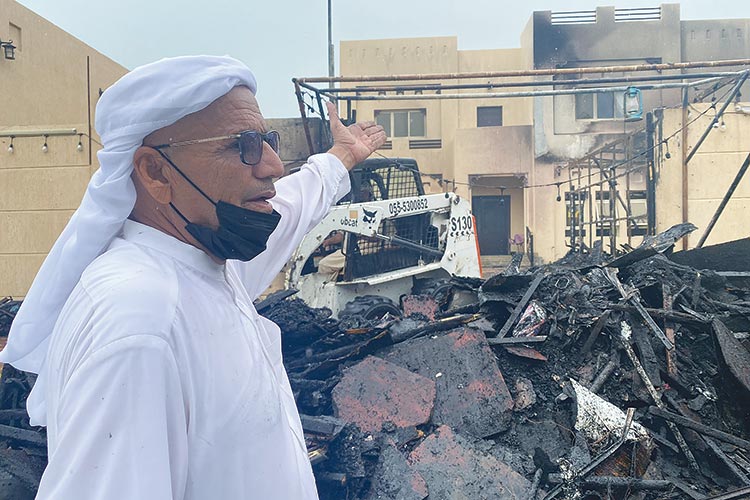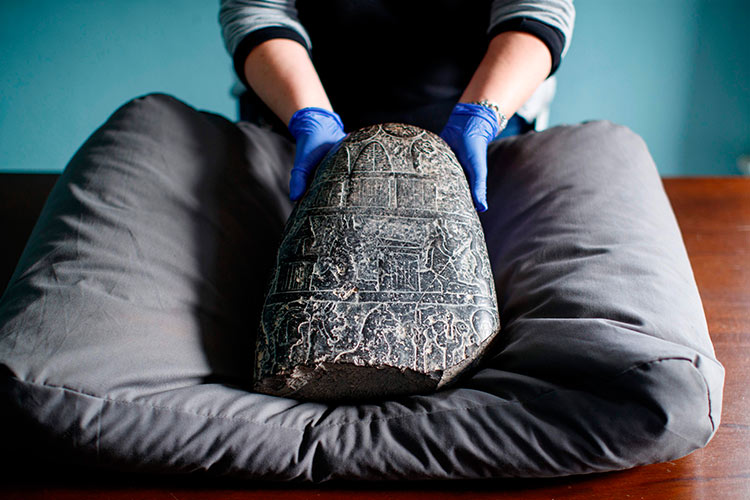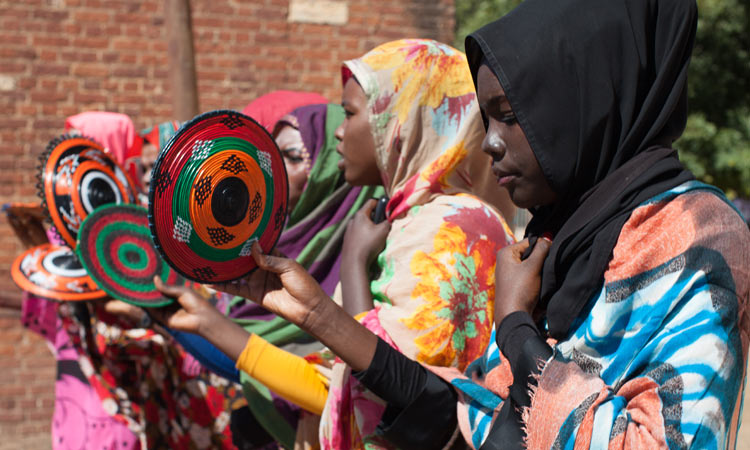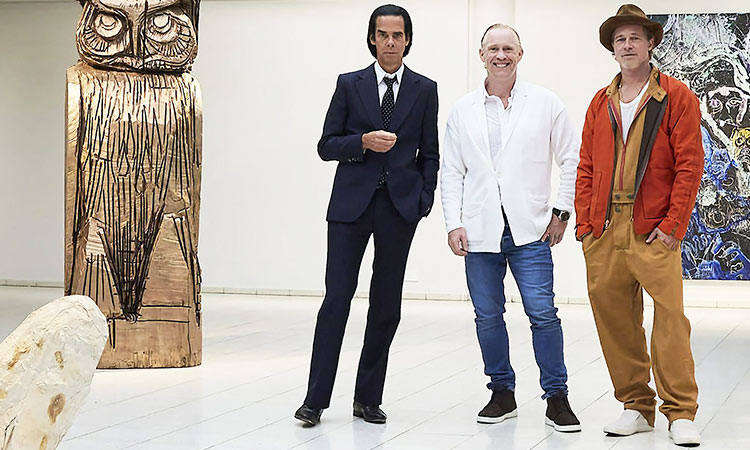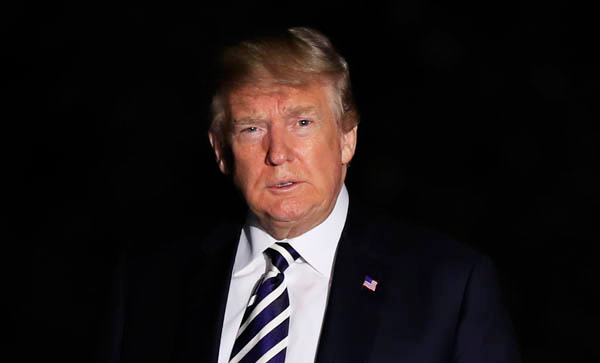Heritage lost
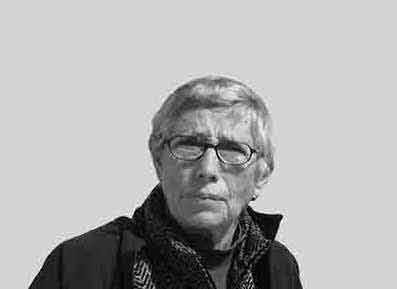
Michael Jansen
The author, a well-respected observer of Middle East affairs, has three books on the Arab-Israeli conflict.
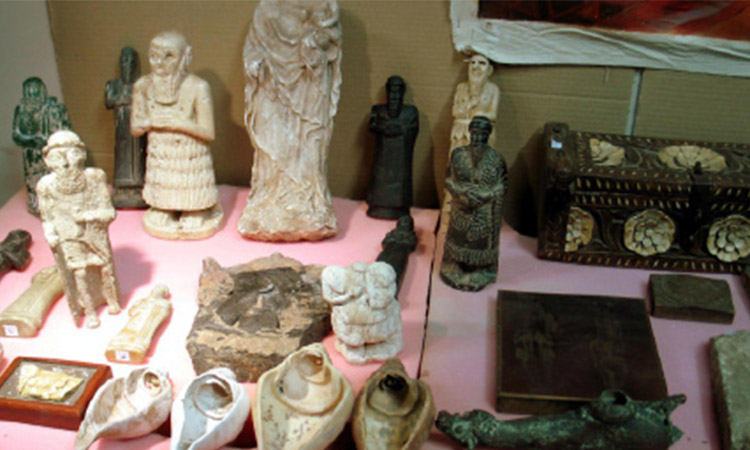
Sculptures and stone tablets were among the artifacts returned to the Iraqi National Museum by authorities in neighbouring Syria after being looted during the US-led invasion of Iraq.
A month later, I arrived in Iraq with the UN cultural organisation (UNESCO) team sent to investigate the pillage of the Iraq National Museum in Baghdad while US tanks squatted the street nearby. I told my close friend Selma al-Radi, the sole Iraqi archaeologist on the mission, that I would go to Baghdad with her to report on this outrage against the history and heritage of all mankind.
Uncertain what supplies we would find in Baghdad, Selma and I stocked up at supermarket in Amman on bottled water, biscuits, processed cheese, and peanut butter for the stay. We departed on the 900-kilometre journey in three large vehicles early the next morning once the rest of the team arrived in Jordan. After pausing for breakfast at a restaurant in Ruwaished near the border, we crossed into Iraq where a young US soldier glimpsed at our passports and waved us through. Selma fumed and fussed that entry into her ancient country should be controlled by an ignorant US trooper.
In Baghdad, we checked into a modest hotel in the Karada district. Our supplies were superfluous: the hotel had a full menu and a piano player to beguile guests during dinner. But Baghdad was far from normal. The US military had occupied the city without imposing security. There was an 8 pm curfew and mysterious saboteurs were going around the city blowing up local telephone exchanges. One afternoon we watched in horror as two men climbed up Baghdad’s iconic communications tower to escape the fire they had set on the lower levels.
Before the war, museum staff had packed moveable treasures in boxes and put them in the museum’s storerooms and secreted them in bunkers around the city. The splendid royal jewellery from Ur and Nimrod were in the flooded vaults of the Central Bank. The Bush administration had been warned by archaeologists and historians to provide protection for the museum, libraries holding valuable manuscript collections, the modern art museum, and other important sites. Nothing was done.
Dozens of irreplicable large artifacts were stolen from the galleries, thousands of items in three breached storerooms were pillaged and pottery was smashed. Reserve Marine Colonel Matthew Bogdonos, a stiff-necked New York district attorney with a master’s degree in classical studies, was appointed by the US military to head the investigation and recovery effort. While the National Museum was finally secured, nine out of 13 provincial museums were pillaged and burned, and archaeological sites were systematically looted. An estimated 4,000 items were stolen From the National Museum alone, and US tanks and armoured vehicles crushed an unexcavated archaeological site near the ancient city of Babylon. As the US is without history, it has no respect for peoples and countries endowed with rich histories.
It took the US until August 2021 to repatriate 17,000 artifacts stolen from Iraq. This was the largest ever single cache of loot reclaimed by Iraq although smaller groups artifacts had been returned earlier and since then.
Having miserably failed to defend Iraq’s heritage, the Bush administration did no better when assuming the task of providing Iraq with effective government or rebuilding its economy.
Bush’s war was based on lies. He and his accomplices accused Saddam Hussein of maintaining secret stocks of weapons of mass destruction although they had been destroyed in 1991 after his father, George H.W. Bush, drove Iraqi forces from Kuwait which Iraq had occupied in August 1990.
Bush Junior and his entourage claimed they intended to liberate Iraq from a Sunni regime. This was another lie. Iraq was ruled by a secular Baath party government. While Saddam Hussein and his family were Sunnis, Shias and Christians held key ministries in the government. Saadoun Hamadeh was oil minister while Amr al-Saadi held the posts of defence industry and industry minister. Both were Shias. Another Shia, Mohammed Saeed al-Sahaf served as information and foreign minister. Saddam Hussein’s deputy Tareq Aziz was a Christian. Furthermore, the majority of Baath party members were Shias.
Bush Junior pledged to instal democracy in Baathist Iraq. Instead, he adopted the traditional colonial practice of divide-and-rule. He planted a regime based on sect and ethnicity in which the prime minister was always a Shia, the speaker of parliament a Sunni and the largely ceremonial president a Kurd. Elections benefitted well-organised Shia religious expatriate fundamentalists who,” many Iraqis said, rode into Baghdad on the backs of US tanks.”
By inaugurating a parliamentary system with regular elections, the US empowered these sectarian movements while the Baath party, their sole serious rival, was outlawed. The sectarian parties were offshoots of Dawa, a Shia revolutionary movement established in 1958 and its Iran-founded and Iran-funded offshoots and militias. The latter groups, which remain closely allied to Iran but collaborate with the US, compete with the Shia Iraqi nationalist movement headed by Muqtada al-Sadr. Sunni politicians have been marginalised and Sunni communities persecuted, particularly during the premiership of Nouri al-Maliki.
Bush Junior also promoted Kurdish-Arab ethnic division by formalising the autonomy of the Kurdish majority region. This encouraged Iraqi Kurds to hold an independence referendum in 2017. This prompted a crackdown by Baghdad which seized 20 per cent of the region’s territory, including the Kirkuk oil fields which was the Kurds’ main source of revenue.
On Oct.1, 2019, thousands of Iraqis, mostly Shias, took to the streets and squares of southern and central Iraq to demand an end to the ethno-sectarian system of governance and to protest against foreign intervention in Iraqi affairs, corruption, unemployment, and clientism. The protests continued sporadically until late 2021 without achieving the demands of the people who remain trapped in a system imposed by the US and exploited by both Iran and the US.
Photo: TNS
